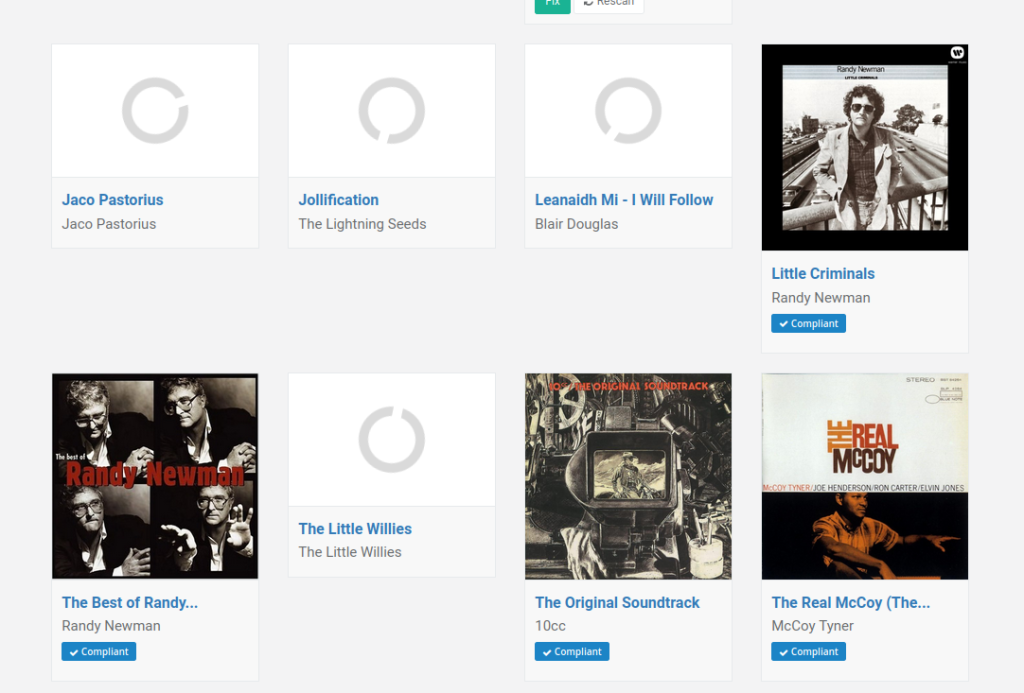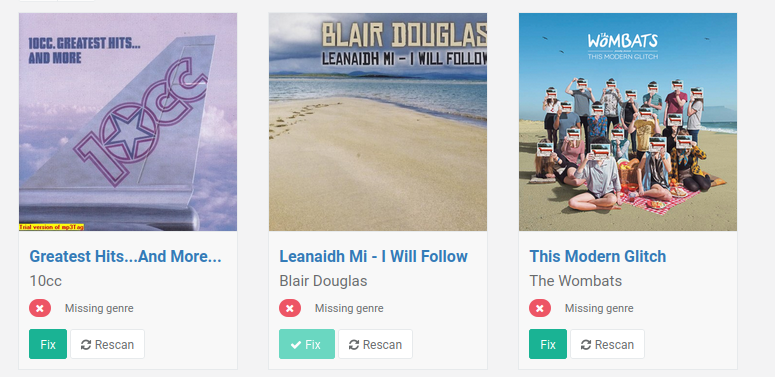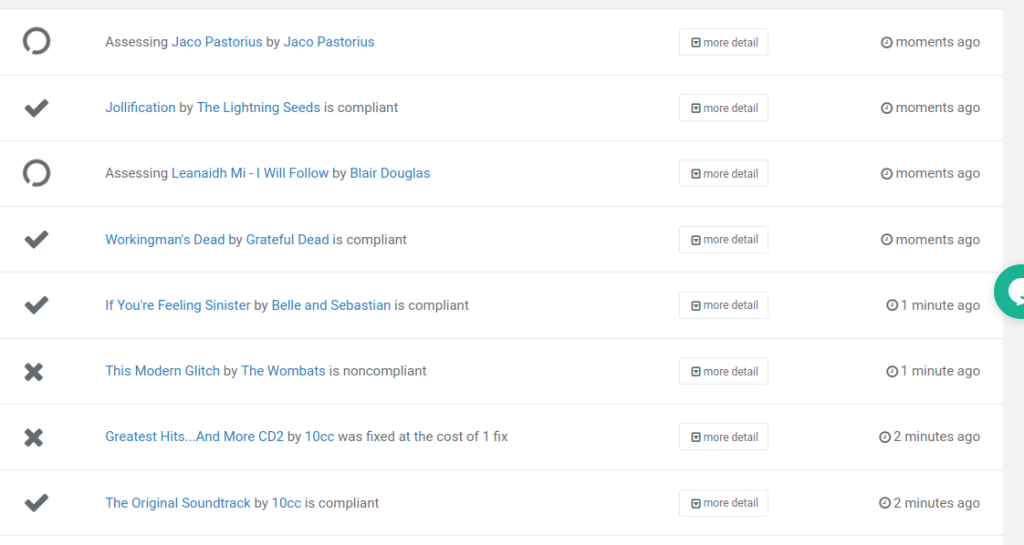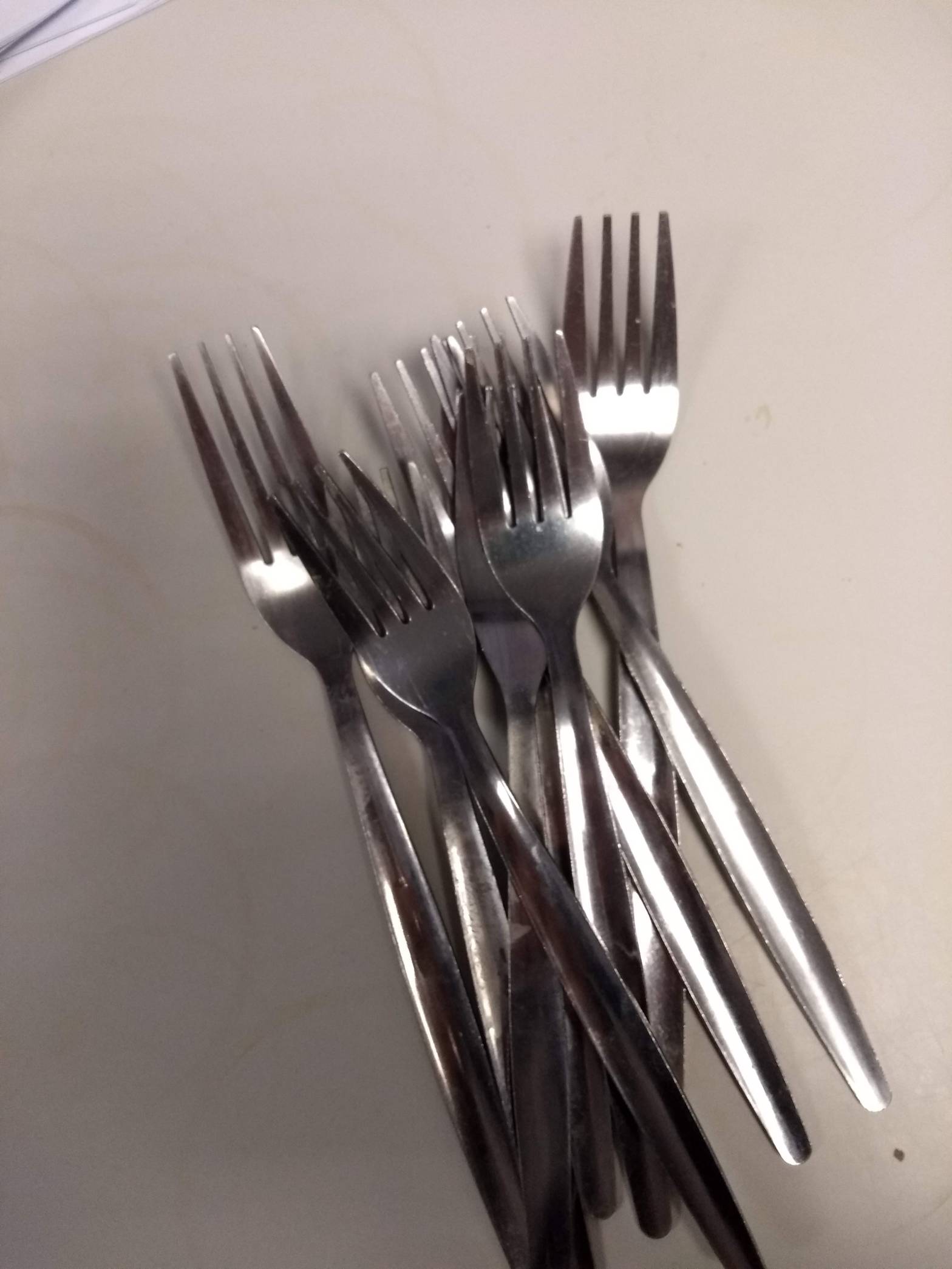I ripped my CD’s in the noughties. Now they’re sat in the attic awaiting the collapse of civilisation. When the electricity stops working I can at least look at the covers and remember what music used to sound like.
In the meantime I can enjoy listening to my music wherever I like. Since I digitised my collection, however, I’ve never managed to keep it tidy. I’ve tried various software to sort out my folders, eventually settling on Picard and Emacs. The trouble is, the collection always seems to grow faster than my attempts to tidy it.
This weekend I gave up trying to manage it myself and installed bliss. bliss audits your music collection according to a set of rules that you choose and then fixes any problems it finds.
By way of introduction, bliss fixes your cover artwork. The software is very flexible, you can choose whether to embed the art into the individual music files, keep it separate or both, for example.
Here’s a picture of it in action:

You can choose from alternate covers if you want to match the art in your original collection.

Finding lost artwork is only the beginning. You can apply rules to do such things as fix genre or sort out your folder structure. Fixes can be applied manually or automatically, as below:


I’ve wasted a lot of time over the past few days just watching it work:

What’s the catch? Well, not a catch as such, but you have to pay for bliss. It comes with 100 fixes, so that’s a 100 pieces of cover art installed for example.

You can buy more fixes but for a large collection you’re going to end up spending £59 or equivalent for unlimited fixes, and let’s face it, if you don’t have a large collection, you’re not going to need the software.
Is it worth it? As a writer I believe that people should be paid for their creative endeavours however, full disclosure, bliss offer a the license free to people who blog about the software. But even if they didn’t, I’d pay the money.
Fifteen years of trying and failing to tidy my collection have proven to me it’s not going to happen any other way.
Find out more here: https://www.blisshq.com





